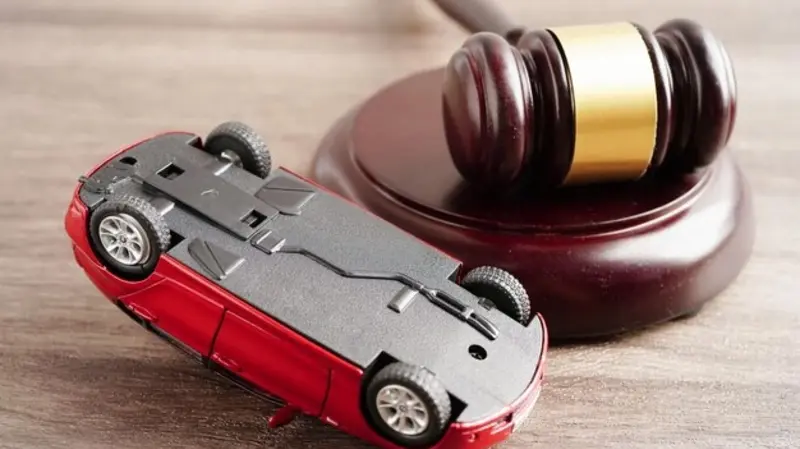Table of Contents
- Understanding DUI Laws
- The Evolution of DUI Enforcement
- Societal Attitudes Towards DUI
- Consequences of DUI Convictions
- DUI Laws and Public Safety
- Innovative Approaches to Reduce DUI Incidents
- Comparative Analysis: Global DUI Laws
- Future of DUI Legislation
- Resources for Individuals Affected by DUI
The realm of driving has seen significant transformations in recent years, mainly due to the implementation of stringent DUI laws. Drunk driving in Lincoln, NE, once more casually dismissed, now faces severe consequences shaping how individuals perceive and engage in driving activities. For those individuals who find themselves entangled with these legal challenges, seeking assistance from a competent DUI lawyer in Lincoln, NE, becomes crucial. The evolution of DUI regulations marks a distinct shift in how individuals navigate their responsibilities on the road today, pressing the need for awareness and adaptation.
The influence of DUI laws extends well beyond the courthouse, molding societal norms and personal habits regarding road safety. These regulations have sparked a wider discussion regarding the implications of driving while impaired, fostering a more thorough reassessment of driving practices and social behaviors. This article explores the diverse impacts of DUI laws on contemporary driving culture, investigating how these regulations influence everyday life in both anticipated and surprising manners.
Understanding DUI Laws
DUI laws provide a critical framework that defines illegal levels of blood alcohol content (BAC) while driving and articulates the penalties for violations. These laws are more than mere deterrents—they serve as foundational guidelines reflecting society’s growing vigilance toward ensuring public safety on the roads. The establishment and evolution of DUI policies over time illustrate a trajectory where lawmakers continuously seek to curb impaired driving and its consequences. With heightened legal awareness, drivers must adhere strictly to these regulations, choosing safer alternatives when navigating alcohol consumption and driving responsibilities.
The Evolution of DUI Enforcement
Technological advancements have significantly revamped how DUI laws are enforced. From the early utilization of basic breathalyzers to today’s sophisticated roadside sobriety tests and electronic monitoring devices, the tools used by law enforcement to accurately identify impaired drivers have evolved remarkably. These innovations have enhanced the efficiency with which officers can detect DUI incidents and reinforced the prosecutorial process, ensuring that enforcement is as swift as possible. The dynamic synergy between technology and enforcement underscores society’s commitment to maintaining safer roads by minimizing impaired driving.
Societal Attitudes Towards DUI
Societal perception of DUI has undergone a notable transformation. Historically seen as a misdemeanor with minor consequences, today’s view of DUI acknowledges it as a serious threat capable of endangering lives. Public awareness campaigns and educational programs play significant roles in this perceptual shift, instilling the values of responsibility and safety-oriented driving behavior. As a result, the general public increasingly regards DUI with the caution and seriousness it merits, promoting a collective understanding that prioritizes safety and accountability over convenience.
Consequences of DUI Convictions
The repercussions of a DUI conviction extend far beyond immediate legal penalties. Financial burdens arise from fines, heightened insurance premiums, and costs associated with legal services. Additionally, individuals may lose their driving privileges, face incarceration, or be required to complete driving education courses. Moreover, the long-lasting effects of a DUI conviction can trickle into personal and professional domains, potentially impairing career opportunities and personal relationships. For these reasons, rehabilitation and counseling services are often recommended to support affected individuals on a path toward recovery and future compliance with the law.
DUI Laws and Public Safety
DUI laws significantly bolster public safety by reducing impaired driving incidents and accidents. Statistical analyses consistently demonstrate that stringent enforcement correlates with decreased DUI-related fatalities and injuries. Communities that have proactively implemented and enforced DUI regulations witness profound improvements in road safety, as evidenced by various case studies. This reinforcement of public safety through legal means signifies an ongoing commitment to preserving the welfare of all road users, ultimately contributing to a reduction in alcohol-related vehicular mishaps.
Innovative Approaches to Reduce DUI Incidents
Preventative technology and community-based programs represent the vanguard in reducing DUI incidents. Devices like ignition interlocks, which require drivers to pass a breathalyzer test before their car can start, offer a proactive solution to prevent offenders from repeating their actions. On the other hand, community initiatives focusing on education and awareness reinforce the importance of responsible driving practices. These dual fronts exemplify how society continues to innovate and apply creative solutions to combat the ongoing challenge of impaired driving.
Comparative Analysis: Global DUI Laws
Examining how various nations tackle DUIs can offer an important understanding of the efficacy of different policies. Some countries impose stricter BAC limits, while others focus on significant fines or prison sentences. This comparative analysis reveals a universal commitment to road safety across borders, with many countries learning from each other’s successes and challenges. International standards provide a lens through which domestic policies can often be evaluated and enhanced to meet safety objectives better.
Future of DUI Legislation
As technological advancements continue to unfold, DUI legislation is bound to evolve. The development of autonomous vehicles and advanced monitoring systems is expected to drive substantial changes in how DUI laws are conceptualized and enforced. These innovations could redefine the legal landscape, integrating technology more deeply into frameworks for preventing and prosecuting impaired driving. The role of emerging technologies henceforth represents a pivotal factor in crafting future legislative models aimed at upholding and advancing road safety.
Resources for Individuals Affected by DUI
Support systems play an essential role in aiding individuals affected by DUI charges. Access to legal aid, mediated through expert DUI lawyers and comprehensive rehabilitative programs, forms the backbone of such support. Moreover, educational resources and awareness campaigns further assist in recovery and reintegration. Initiatives spearheaded by organizations emphasize the importance of a structured, compassionate approach in supporting affected individuals, ensuring they receive the necessary guidance and care to resume their lives responsibly and lawfully. Contact us for more details visit our site.

